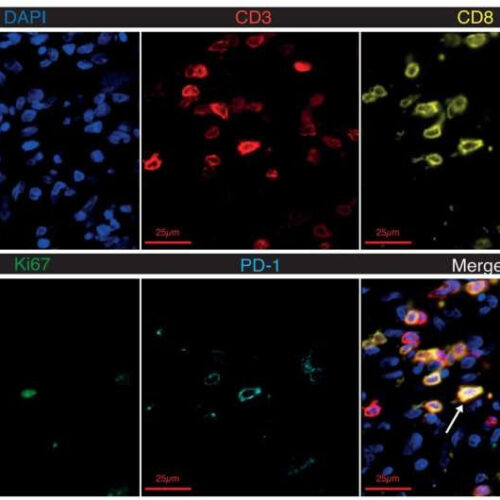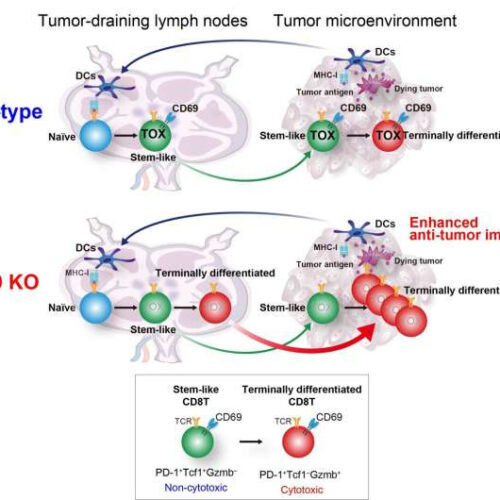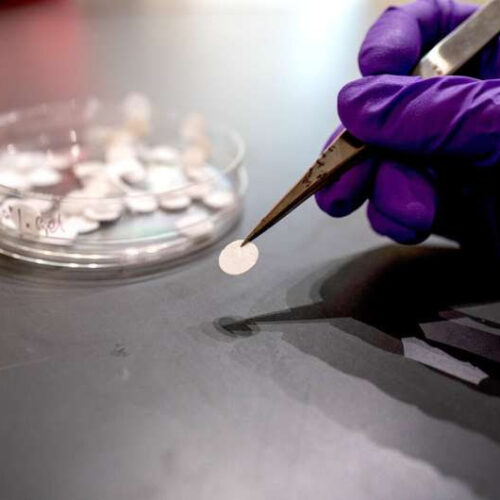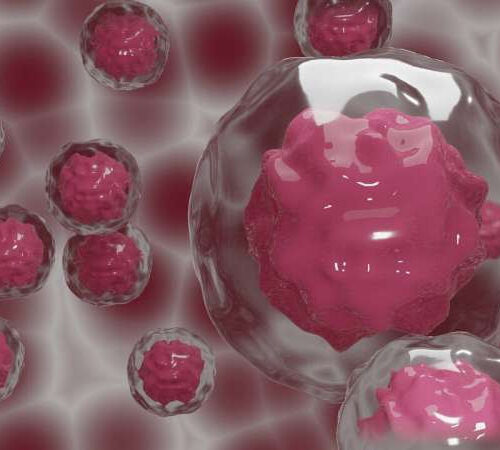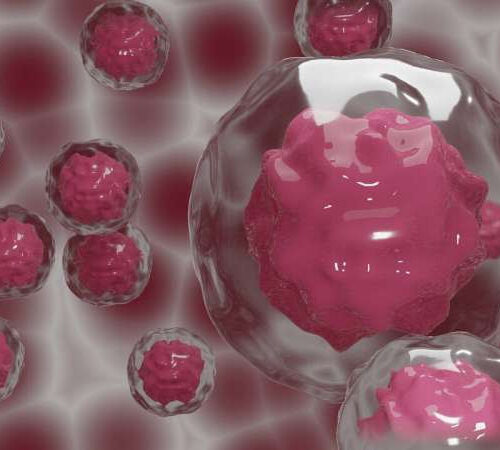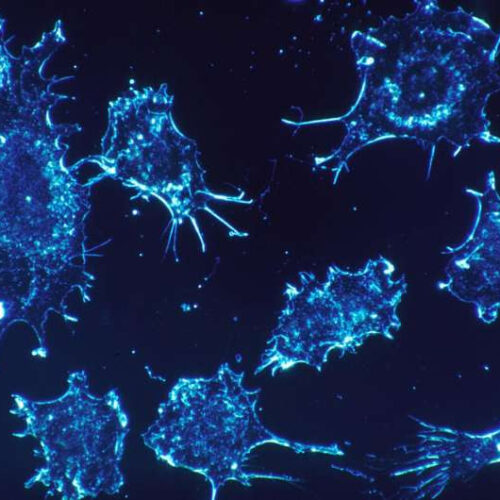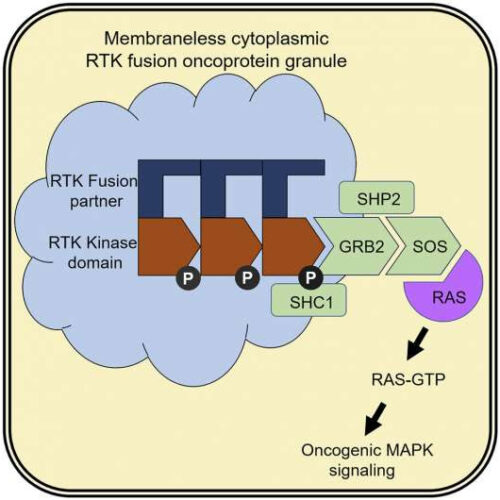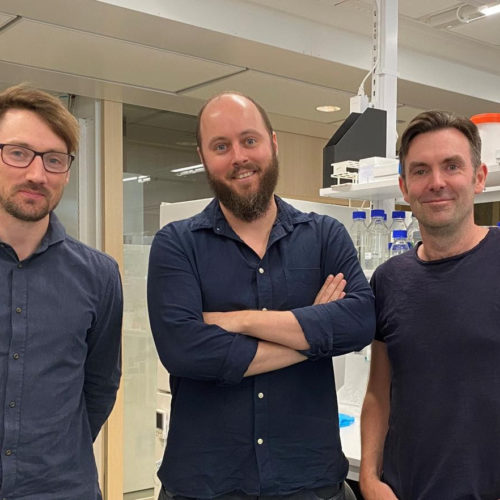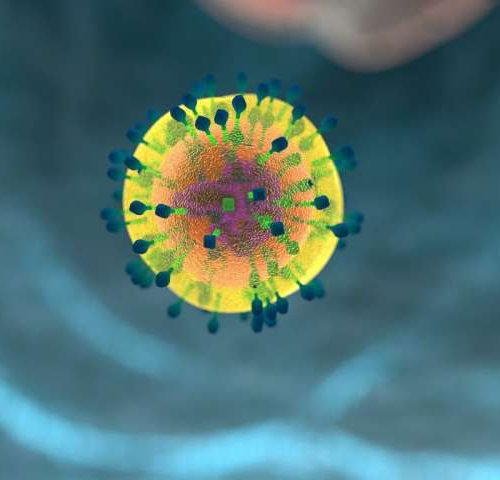by Brigham and Women’s Hospital Multiplexed immunofluorescence of synovial tissue. Multiplexed immunofluorescence images showing an example of a Ki67+PD-1+ synovial CD8 T cell (white arrow). CD3 staining is shown in red, CD8 in yellow, nuclear stain DAPI in blue, Ki67 in green and PD-1 in cyan. Credit: Science Immunology (2023). DOI: 10.1126/sciimmunol.add1591 Immune checkpoint inhibitor (ICI) therapies used to...
Tag: <span>cancer therapies</span>
The benefits of anti-CD69 antibodies for future cancer therapies
by Chiba University A study to describe the functional mechanism of CD69 in regulating the tumor-specific CD8+ T cell fate in tumor-draining lymph nodes (TDLNs), which can be used to develop a novel anti-CD69 antibody for more efficient cancer immunotherapies in the future. Credit: Ryo Koyama-Nasu and Motoko Y. Kimura from Chiba University CD8+ T cells,...
Upgraded tumor model optimizes search for cancer therapies
by Rice University The disk-shaped 3D scaffolds used to model the tumor microenvironment mimics bone structure and texture. Credit: Gustavo Raskosky/Rice University Tumor cells won’t show their true selves in a petri dish, isolated from other cells. To find out how they really behave, Rice University researchers developed an upgraded tumor model that houses osteosarcoma cells...
Discovery offers insight for development of cancer therapies targeting mutant p53
by Vanderbilt University Medical Center Credit: CC0 Public Domain The tumor suppressor protein p53 is mutated in more than half of all human cancers. Several drugs that potentially can restore mutant p53 to its normal cancer-killing function are in clinical investigation. However, much remains to be learned about various mutations that lead to a “loss of...
New cancer therapies that reduce the risk of heart damage
by Skylar Cuevas, Vanderbilt University Credit: CC0 Public Domain With modern-day cancer therapeutics presenting adverse side effects to heart health, scientists are studying methods to attack cancer cells without the risk of damaging the heart. Researchers Steven Townsend, associate professor of chemistry, and Neil Osheroff, John Coniglio Professor of Biochemistry and professor of medicine, synthesized the biological compound...
Study finds protein aggregation inhibitor can be used to develop cancer therapies
by New York University Credit: CC0 Public Domain A new study by an international team of researchers, led by NYU Abu Dhabi Associate Professor of Biology Mazin Magzoub, provides important insights into the p53 protein, a critical tumor suppressor often mutated and deactivated in cancer and a key target in the development of cancer therapeutics. The...
Novel structure found in tumor cells may open door to new kinds of cancer therapies
by Jason Alvarez, University of California, San Francisco Graphical abstract. Credit: Cell (2021). DOI: 10.1016/j.cell.2021.03.031 In 2015, researchers at UC San Francisco found a structure inside of tumor cells that biologists had never seen before. Even more surprising, a closer examination of the structure revealed that it contained signaling proteins known as receptor tyrosine kinases, or RTKs, which were...
Loss of anti-tumor protein may cause resistance to certain cancer therapies
HERSHEY, Pa. — The absence of a protein that works to prevent tumor formation may explain why some patients are resistant to a common cancer therapy, according to Penn State College of Medicine researchers. They said that testing cancers for the presence of this protein may help clinicians identify patients who may be resistant to or...
Researchers identify nanobody that may prevent COVID-19 infection
IMAGE: FROM LEFT: LEO HANKE, BEN MURRELL AND GERALD MCINERNEY, RESEARCHERS AT THE DEPARTMENT OF MICROBIOLOGY, TUMOR AND CELL BIOLOGY AT KAROLINSKA INSTITUTET. Researchers at Karolinska Institutet in Sweden have identified a small neutralizing antibody, a so-called nanobody, that has the capacity to block SARS-CoV-2 from entering human cells. The researchers believe this nanobody has...
Severe viral infection overwhelms immune cells
by University of Melbourne Melbourne researchers have identified mechanisms leading to the functional deterioration of the immune system in response to severe viral infections, such as HIV or COVID-19. It is widely known that severe viral infections and cancer cause impairments to the immune system, including to T cells, a process called immune ‘exhaustion’. Overcoming...

